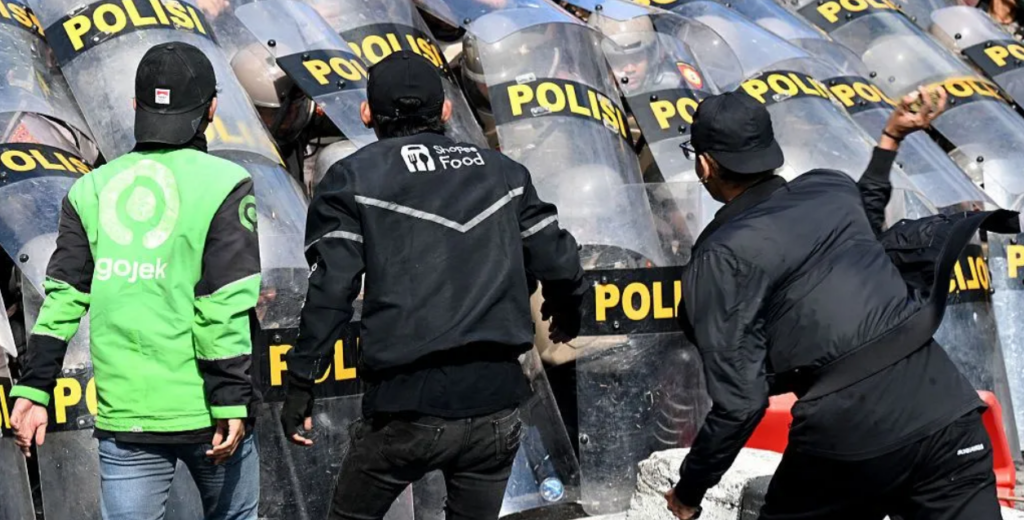Indonesia’s President Prabowo Subianto is under pressure after the deadliest protests of his presidency. The riots left at least 10 people dead and saw hundreds detained.
The unrest began with anger over low wages, high unemployment, and lawmakers’ lavish perks. Tensions exploded when video showed a police vehicle running over 21-year-old delivery driver Affan Kurniawan.
Protests Turn Deadly
The footage spread quickly online. Crowds poured into the streets. Buildings were burned, and some politicians’ homes were looted. Rights groups say the protests exposed deep frustration with the country’s political elite.
Prabowo’s Response
To calm the anger, Prabowo promised tough action against the officers involved. He scrapped lawmakers’ housing allowances and reshuffled his cabinet.
One major change was the removal of finance minister Sri Mulyani Indrawati, a respected figure from the previous Jokowi administration.
In her place, Prabowo appointed Purbaya Yudhi Sadewa. The new minister immediately announced a $12 billion stimulus plan to spur growth and ease public anger.
Power Consolidation
Analysts say the reshuffle is not just about damage control. It also helps Prabowo consolidate power. Many of the new ministers are close allies, replacing officials linked to former president Joko Widodo.
“Prabowo is slowly erasing Jokowi’s influence,” said political researcher Virdika Rizky Utama.
The Road Ahead
Prabowo’s flagship programs—such as free school meals and a sovereign wealth fund—remain unchanged. But experts warn these costly projects may not solve the real issues: stagnant wages, inequality, and democratic decline.
“The perception of justice will worsen if reforms are half-hearted,” said Rani Septyarini of the Center of Economic and Law Studies.
For now, Prabowo’s moves have bought him time. But analysts warn that without real change, another crisis could erupt.
“This is a time bomb,” Virdika added. “If frustrations pile up, it will blow up.”

